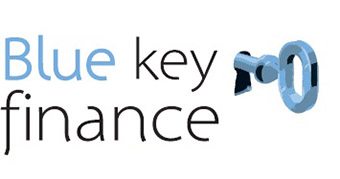Missed a mortgage repayment
Missing a repayment, not the end of the world
You might think that missing a mortgage repayment is a pretty bad situation. But the good news is that it’s not the end of the world and you do have options. By acting fast, you can get your mortgage payments back on track.
Here are some things you can do to get a recovery plan in place.
Contact your bank
If you miss a mortgage repayment, the first thing to do is contact your bank. Your bank must assess and respond to your request. Explain to your bank:
- Why you missed a repayment
- How you plan to catch up (can you find the money now or pay back what you owe over the next few months?)
- What they can do to help you get back on track
Get over the fear factor
Most people find it stressful and embarrassing to talk with their bank about why they missed a mortgage repayment. But remember, getting into financial difficulty is something that could happen to anyone. Taking action quickly means you can stop a small problem from escalating into a big one.
Arrears
The money you owe is called ‘arrears’. This is the term your bank is likely to use when speaking to you.
Create a budget
If you have missed a mortgage repayment, it is important to get a clear picture of what you earn, what you can save and what your current debt commitments are. Use our budget planner to do this.
Your options
Bring your repayments up to date
Do this if you can find the money or sell some assets to raise the money.
Change the terms of your loan
If you think your problems are short term and can be sorted out in 3 months, your lender can help you by changing the terms of your loan. You can ask them to temporarily reduce your repayments or delay your repayments. This is called a ‘hardship variation’.
If your problems are long term and your circumstances don’t look like they will change, you may need to consider selling your home.
Before you come to a new agreement with your bank, be realistic about what repayments you can afford.
If you are not happy with your bank’s response you can ask to speak to their internal complaints section.
Talk to the Ombudsman
If you are still not satisfied with the bank’s decision you can contact a free external dispute resolution scheme. Your bank must tell you which one of these two schemes it belongs to: Financial Ombudsman Service (FOS) – 1800 367 287 or Credit and Investments Ombudsman (CIO) – 1800 138 422.
Claim on your insurance
If you took out unemployment, accident or sickness insurance when you got your loan, you may be able to claim on that insurance. Check out your policy or call your insurer to see if your policy covers your current circumstances.
Get help from your utility billers
If you are having trouble paying your water, phone, gas or electricity bills and this is affecting your ability to pay your mortgage, contact your utility providers. See if you can negotiate a better repayment arrangement with them.
Sell your home and buy a cheaper one or renting
If your repayments are no long affordable, you may have to seriously consider selling your home and downsizing or renting. Of course this will take time to arrange, so you will still need to negotiate a plan with your bank about how you intend to manage this. This decision is one that requires careful thought and planning, so make sure you take stock of the options and seek advice.
Ask for help
Need more help? If you are unsure what to do or are having trouble negotiating with your bank, you can get free confidential help from a financial counsellor.
Financial counselling is a free service offered by community organisations, community legal centres and some government agencies. Financial counsellors can help you solve your money problems.
The Financial counselling hotline is 1800 007 007.
Things to avoid
If you start to struggle with your mortgage, there are some strategies that could make your situation worse. Try to avoid:
- Borrowing more money or using your credit cards – If your existing loan is already unaffordable, you don’t want to get yourself deeper into debt.
- Borrowing from family and friends – While this may work for some people, it can add to your debts plus you’ll have the social pressure of owing money to your loved ones.
- Refinancing or consolidating your debts – If you are thinking about rolling all your loans into one, know the risks involved and watch out for hidden costs.
- Switching home loans – Be aware that it may take some time for you to recoup the costs of switching.
- Accessing your super – You can only do this in limited circumstances. This is a last resort and should only be considered if it will save your home.
If you have missed a repayment, it is important to think further than just the next repayment. Put a plan in place straight away so that you can afford your bills and get back on track.
If you haven’t already, click here to download our FREE E-Book on “Refinancing”or email us instead and we’ll end it to you within 24 hours.



Leave a Reply
Want to join the discussion?Feel free to contribute!